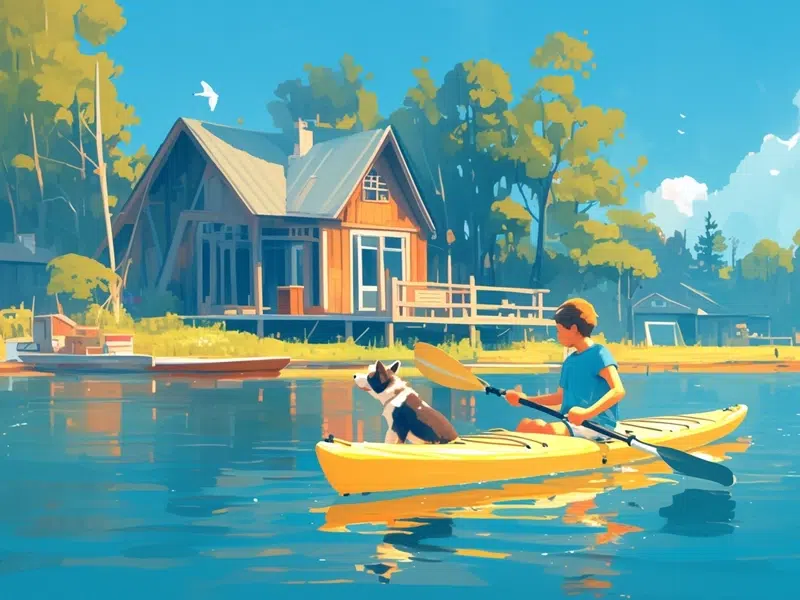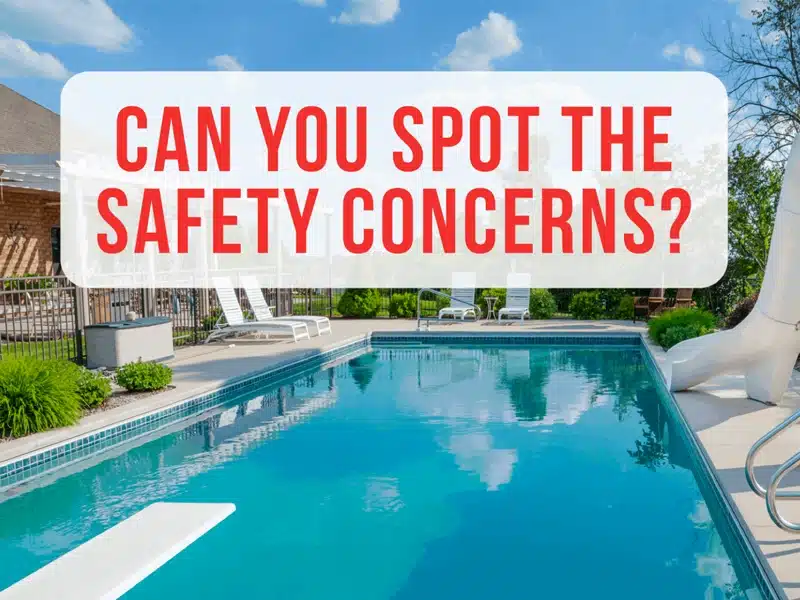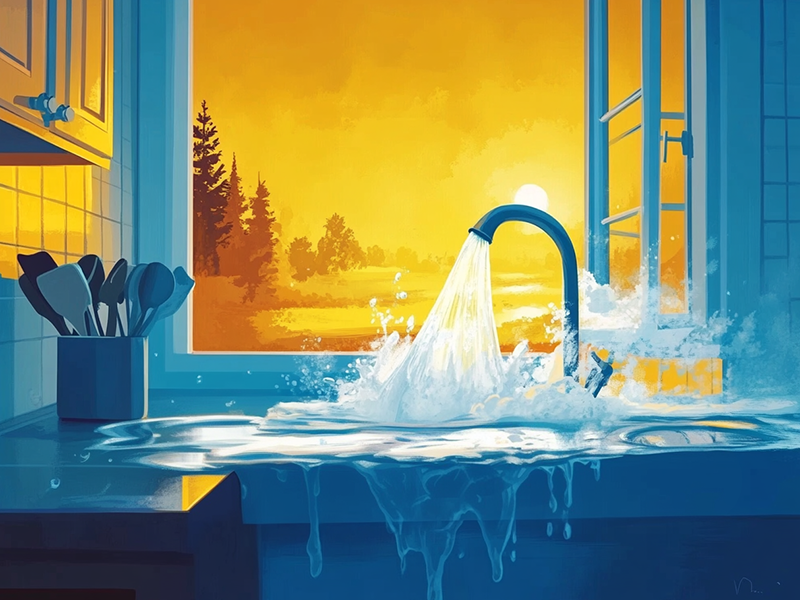Home Insurance for Airbnb Owners: Protection beyond the beam and brick
When looking for insurance for your Airbnb property, it’s important to think beyond traditional coverage. It starts by understanding the increased risks when renting short-term and the limitations of traditional policies when trying to protect your Airbnb business.
Hosting on platforms like Airbnb or Vrbo transforms your home into more than just a residence; it becomes a business with a welcome mat for strangers to enter your community.
The shift from home to business means you now not only need to protect your property from the usual hazards — fires, storms, or thefts — but also need to guard yourself against risks specific to short-term rentals, such as liability for guest injuries both on and off property as well as lost revenue if a claim takes your property off the rental market.
These complexities demand a more robust insurance solution, one that is tailored to the realities of hosting and owning a short-term rental property. Understanding these unique challenges is crucial as you explore your Airbnb home insurance options.
- Home Insurance Needs for Short-Term Renting on Airbnb
- Highlighting Common Airbnb Risks to Understand Insurance Needs
- Understanding the Limitations of Traditional Insurance Policies
- Proper Insurance vs. Standard Homeowners (HO) and Landlord (DP) Policies
- Why Comprehensive Home Insurance Is Crucial for Airbnb Hosts
- How Proper Insurance Meets Airbnb Hosting Needs

Home Insurance Needs for Short-Term Renting on Airbnb
As we’ve just outlined, when you list your property on Airbnb, your home turns into a business with a revolving door of paying strangers. These strangers often do not have you or your property’s best interest in mind, unlike that of a friend or family member who is staying at your home.
Rather, Airbnb guests are oftentimes fully in vacation mode at a property that is unfamiliar to them, with access to all its belongings and an entry point into the community.
This risky combination exposes the hosts to potential liabilities and damage that extends beyond the physical structure of the home.
The Risk Increase When Short-Term Renting vs. Primary Home
Transitioning from using your property as a primary residence to a short-term rental introduces a significant increase in risk. As a homeowner, you’re familiar with every nook and cranny of your property, aware of any peculiarities, and generally have control over who enters your space.
Short-term renting relinquishes this control, inviting guests who are not only unfamiliar with the property but also less invested in its care. The combination of high turnover between guests and the vacation mindset can lead to increased accidental damage and even intentional vandalism in some cases. While Airbnb offers AirCover, it’s not a replacement for having the correct insurance and should not be solely relied upon.
The liability risks also escalate when operating a short-term rental. Guests’ unfamiliarity with the property could result in personal injury, for which you might be held responsible. Additionally, there’s the potential for guests to cause disturbances or engage in behavior that could upset or injure neighbors, leading to complaints and even legal issues.
These risks are compounded by the fact that every new guest (sometimes multiple groups of guests in one week) represents a new set of variables, making it challenging to predict and mitigate potential problems.

The Difference Between Short-Term and Long-Term Renting
Short-term and long-term rentals offer the opportunity to generate income from your property, but the risk profiles associated with each are different.
Long-term tenants typically bring their own belongings, adding a personal stake in the maintenance and care of the property. This sense of temporary ownership often results in greater respect for the property and its contents. The tenant changes their address, receives mail at the property, likely knows their neighbors, and is responsible for things like cleaning the tub.
Furthermore, the extended duration of their stay leads to a familiarity with the property and its surroundings, reducing the likelihood of accidents and, therefore, the landlord’s risk of being found liable for things like slipping in the tub from soap scum because it’s the tenant’s responsibility to keep it clean. This same scenario is more complex in a mid-term rental where the line of responsibilities becomes blurred.
Another key difference is the vetting process. Long-term renting allows landlords to conduct thorough background checks on potential tenants, assessing their reliability and history of tenancy. This careful selection process can significantly decrease the risk of property damage and behavioral issues. Additionally, requiring long-term tenants to carry their own renters’ insurance adds an extra layer of protection, covering personal belongings and liability, a practice unattainable with short-term rental guests.
The transient nature of short-term renting, characterized by high turnover and guests, amplifies the potential for damages and liabilities. The lack of personal investment in the property and the abbreviated vetting process inherent in short-term rentals, paired with the guest’s vacation mindset, increase the likelihood of issues arising, from minor damages to more serious damage and liability concerns.
Highlighting Common Airbnb Risks to Understand Insurance Needs
As we’ve outlined, opening your property to Airbnb guests opens you, the host, to more risks than a homeowner or landlord, which is why you should increase your insurance so that you’re protected when things go wrong like:
Property-Related Risks
Natural Incidents: The wrath of nature, including fallen trees, fires, lightning, and wind, can strike without warning, causing damage that isn’t just costly but can also put your Airbnb business and the income it generates on hold.
Damage Caused by Guests: Your home is exposed to risks from guests who might accidentally or intentionally cause damage, ranging from minor incidents like broken items to significant issues such as structural damage.
Liability Risks
Guest Injuries on Property: If a guest gets injured during their stay at your Airbnb, you could be held liable. This risk extends to injuries caused by anything from a loose handrail to unforeseen accidents on and off your property.
Community Issues Involving Guests: The behavior of your guests can also lead to liability issues off your property. For instance, if a guest’s dog bites a neighbor or if their actions result in damage to neighboring properties, you could find yourself facing legal and financial repercussions.
Business Risk
Relying on Revenue Generated: Operating an Airbnb is similar to running a small business, where the product is the guest experience at your short-term rental property. This perspective underscores the importance of protecting not just physical property but also the revenue it generates. Even during a claim, the bills don’t stop coming, highlighting the need for insurance that considers potential revenue loss in addition to the risks of property damage and liability.
Understanding the Limitations of Traditional Insurance Policies
Without adequate insurance in place, you’re placing your trust, your investment, and even the future of your business in the hands of each paying guest. If you’re not willing to take that bet with the strangers staying at your property, that’s where comprehensive coverage steps in.
Limitations of Homeowners Insurance (HO)
Homeowners insurance is designed to protect your personal residence, not a business operation like an Airbnb. This traditional form of home insurance should not be used for a short-term rental business as it’s fundamentally the wrong coverage. Just as you wouldn’t buy automobile insurance for your boat, Homeowners insurance should not be used for a short-term rental business as it is simply the wrong insurance.
Several limitations and exclusions are in a Homeowners policy that would deem your coverage null and void when you list your property on a booking platform Airbnb or Vrbo. This is referred to as the “business activity exclusion” found in Homeowners policies in addition to other limitations. The business activity exclusion gives your insurance carrier the right to deny any claim at your property, even if the guest is not directly involved, like a tree that falls on your home.
Gaps in a Home-Sharing Host Activities Endorsement
If your Airbnb property also serves as your primary residence, a Homeowners policy is only an option with a crucial addition of a Home-Sharing Host Activities Endorsement, which can override the business activity exclusion typical of Homeowners policies.
However, there are still apparent gaps in coverage that can leave hosts vulnerable to significant financial losses like no or limited coverage for:
- Property damage by guests (intentional or accidental)
- Vandalism or theft by guests
- Business income coverage
- Guest liability (off-premises, liquor or alcohol related, liability for amenities provided)
- Limits of coverage too low
- And more. Give us a call or submit a quote to learn more about the gaps in Homeowners policies, even with a Home Sharing Endorsement when insuring a short-term rental like an Airbnb.
Note: This endorsement is not an option if the property is not your primary home. If you have a Homeowners policy for a second home or investment home (a place that is not your primary residence where you live and sleep most of the time), you should take immediate action to change your insurance, as any claims made under such circumstances could be deemed null and void per your policy’s fine-print, exposing you to substantial financial risk.
Limitations of Landlord/Dwelling Insurance
Landlord or dwelling insurance is designed for long-term rental properties, not short-term guest stays. These policies may offer some level of protection against Airbnb risks but typically do not encompass the full scope of protection that Airbnb hosts need such as:
- Intentional or accidental Airbnb guest-caused damage, vandalism, and theft
- Back-up of sewers and drains
- Guest liability off-property
- Alcohol and liquor-related liability
- Pet/animal and wildlife liability
- And more. Give us a call or submit a quote to learn more about gaps in Landlord/Dwelling policies for Airbnbs.
Proper Insurance vs. Standard Homeowners (HO) and Landlord (DP) Policies
The complexities and risks associated with short-term rentals demand a more robust solution: Commercial Homeowners insurance that is tailored to meet the risks of Airbnb and similar short-term rental booking platforms. Commercial insurance policies provide more comprehensive coverage that encompasses property damage, liability issues, and even lost revenue during a covered claim. This level of protection is crucial for Airbnb hosts seeking thorough protection for their property and business.
| Coverage | Example Scenario | Homeowners Insurance (HO) | HO + Home-Sharing Endorsement | Landlord Insurance (DP) | Proper Insurance |
| Property | A natural disaster occurs like a tree falling on your home. | XExclusion for business activity
| ✔If your Airbnb is not your primary home, your HO coverage with an endorsement is likely null and void. | ✔ | ✔ |
| Damage, theft and vandalism by a guest | Guest throws a party and damages the contents of the home and structure | X | X | XCovers theft and vandalism if NOT by your Airbnb guest (property entrustment) | ✔ |
| Liability on premises | Guest gets injured during their stay at your Airbnb | X | ✔If your Airbnb is not your primary home where you live, your HO coverage, even with an endorsement, is likely null and void. | ✔ | ✔ |
| Liability off premises | Guest gets injured during their stay off of your property line like at the beach of your waterfront rental or exiting an Uber in the street | X | X | X | ✔ |
| Replacement costs | Roof damage from a covered cause of loss. $20,000 to replace. | ?More often than not this would be responded to, however the business activity exclusion found in HO policies could result in no coverage. | ✔Typically, pays “actual cash value,” which includes depreciation. The insurer may pay you only $10,000. If this is not your primary home, you may receive $0. | ✔Typically, pays “actual cash value,” which includes depreciation. The insurer may pay you only $10,000. | ✔Replacement cost $20,000. |
| Loss of income | A claim occurs at your property that takes your Airbnb out of business | X | XSome endorsements may extend limited coverage to use “loss of use” as “loss of rents.” However, you may not have enough to cover additional living expenses and loss of income. | ✔Provides a check for “loss of rents,” which is based on the average from your area, including long-term rentals.
| ✔Provides a check for the actual revenue lost up to the limit of your choosing. |
| Liability for amenities | If a guest gets injured or worse from your provided bikes, kayaks, pools, hot tub, etc. | X | X | ✔Only covers amenities that are confined to your property line. | ✔ |
| Vacancy | Damage occurs at the property during the shoulder season or period of vacancy | X | X | X | ✔ |
| Invasion of privacy | House cleaner accidentally walks in on a guest before they check out | X | X | X | ✔ |
| Airbnb squatter | A person rents your property for one week but overstays their checkout period by three months and is now protected by law as a tenant | X | X | X | ✔ |
| Bed Bugs | Liability from bed bug bites and the cost to exterminate them | X | X | X | ✔ |
Why Comprehensive Home Insurance Is Crucial for Airbnb Hosts
Without adequate insurance, each guest’s stay represents a gamble on the future of your business. Trusting strangers with your property and investment requires more than just goodwill; it demands comprehensive coverage designed to mitigate the risks involved in short-term renting. Comprehensive commercial home insurance for Airbnb includes:
Enhanced Property Protection: Coverage that goes beyond standard Homeowner policies to address damages caused by guests (intentionally or maliciously) as well as natural occurrences like fire, wind, hurricanes, etc.
Robust Liability Coverage: Insurance that protects you if a guest is injured or dies on your property or causes harm to the community (or the community causes harm to your guests), ensuring you’re not out of pocket for medical bills, legal fees, or other damages you may be found liable for.
Income Protection: Considering the revenue your Airbnb generates, coverage that includes loss of income protection ensures that you can continue to meet your financial obligations even when your property is temporarily out of operation.
How Proper Insurance Meets Airbnb Hosting Needs
Proper Insurance is the nation’s leading provider of comprehensive insurance specifically designed for short-term rental properties.
Here’s how the Proper Insurance policy addresses the unique challenges faced by Airbnb hosts:
- Damage by Guests: Also referred to as Property Entrustment, coverage extends to accidental and intentional damage caused by guests, ensuring repairs and replacements are financially covered up to the limit of your choosing.
- Liability Off Premises: Protection for incidents that occur outside the property boundaries, safeguarding hosts against broader liability claims involving their guests or the community.
- Amenity Liability: Whether your rental offers a hot tub, bicycles, kayaks, or other amenities, Proper Insurance covers liability issues related to these provided amenities.
- Liquor Liability: Hosts offering complimentary beverages, allowing alcohol on the premises, or even accidental oversight of an alcohol stash left between guests, benefit from coverage against liquor-related incidents.
- Bed Bugs: An often-overlooked aspect of short-term renting, bed bug infestations are covered, protecting both your property, liability, and reputation.
- And More: The Proper Insurance policy is designed to cover a wide range of scenarios, offering peace of mind to hosts worried about the challenges they may face.
Upgrade Your Short-Term Rental Insurance
Proper Insurance is the optimal choice for vacation rental owners and Airbnb/Vrbo hosts seeking comprehensive coverage for their short-term rental business.
Proper Insurance is the nation’s leading short-term vacation rental insurance provider, with the most comprehensive policy on the market designed to fully replace a Homeowners or Landlord policy. We protect homes in all 50 states with unmatched coverage for your property, revenue, and business liability, customized to include guest-caused theft/damage, liquor liability, amenity liability (bikes, kayaks, hot tub, etc.), bed bugs, squatters, and more.




